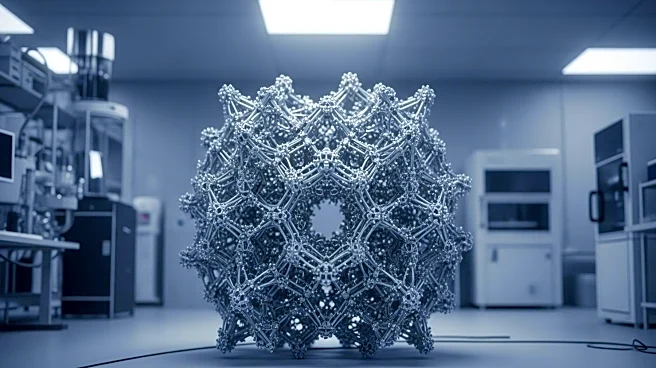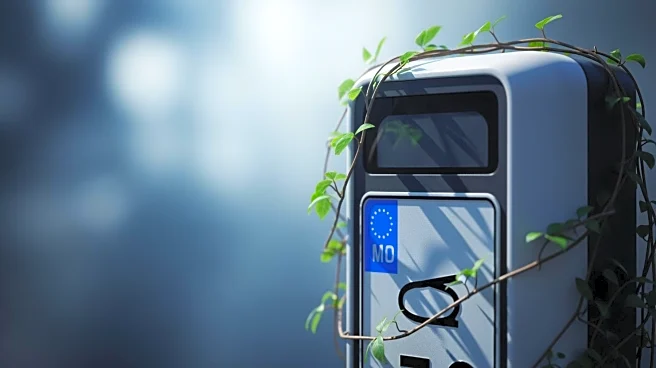What's Happening?
A team of researchers from MIT has developed a novel self-assembling material that could significantly improve the recycling process for electric vehicle (EV) batteries. This material, which can quickly disassemble when submerged in a simple organic liquid, serves as the electrolyte in a solid-state battery cell. The innovation allows the battery to revert to its original molecular components, facilitating easier recycling. The research, published in Nature Chemistry, highlights a shift from traditional battery designs that focus on performance to those that prioritize recyclability. The team, led by Yukio Cho PhD '23, aims to address the growing issue of electronic waste from EV batteries by designing materials that are both high-performing and easily recyclable.
Why It's Important?
The development of this self-assembling material is crucial as it addresses the environmental challenges posed by the increasing number of EV batteries reaching the end of their life cycle. Traditional recycling methods involve harsh chemicals and complex processes, which are not only costly but also environmentally damaging. By simplifying the recycling process, this innovation could reduce the environmental impact of battery disposal and help conserve valuable resources like lithium. This approach could also support the U.S. in securing its lithium supply chain by reusing materials from domestic battery waste, potentially stabilizing lithium prices and reducing dependency on foreign sources.
What's Next?
The researchers are exploring ways to integrate this material into existing battery designs and new battery chemistries. While the current performance of the material as a standalone electrolyte is not yet competitive with commercial batteries, it shows promise as a component in a multi-layered electrolyte system. The team is optimistic that with further optimization, this material could be adopted in future battery technologies. Additionally, the approach could encourage the battery industry to adopt more sustainable practices, potentially reshaping the market for EV batteries and recycling.
Beyond the Headlines
This development could have broader implications for the battery industry, encouraging a shift towards designing products with their end-of-life in mind. It also raises questions about the economic and regulatory frameworks needed to support such innovations. As the demand for EVs continues to grow, the ability to efficiently recycle batteries could become a critical factor in the industry's sustainability and economic viability.









